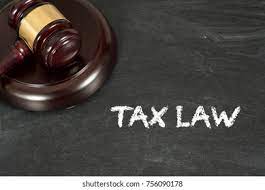There are many factors to consider when calculating your property taxes. Although newer homes are typically worth less, some reassessments are scheduled at any point. As a result, two equally priced homes in Oregon could end up having dramatically different property tax bills. The difference in the monthly payment can make the entire process more complicated. But even if property taxes are set fairly, there are ways to lower them. Listed below are a few tips to keep in mind provided by a lawyer who is expert in property and income taxes.
In Oregon, property tax rates are based on the Assessed Value (MAV) of the property. The Assessed Value is the real market value of a property in 1995. Additional taxes are determined based on taxable property in the district. Several tax rates are combined for each property, so you may have to pay more than one. In some cases, property values are increased by as much as 3% annually.
To lower your tax bill, you should avoid making late payments. You can avoid these taxes by using the homestead exemption. You can receive an exemption for up to $40,000 in equity in your home. The homestead exemption is a special exemption that protects your equity from creditors in the event of bankruptcy. This is automatically granted and does not require you to apply. Once you’ve filed your Oregon property tax return, you should check with your mortgage company to ensure that you haven’t made any payments to the wrong place.
While the state is largely progressive, property tax rates can be very high. In the case of new construction, property values in inner NE Portland were low when the recession hit. Today, however, property values are much higher than they were in 1995. Thus, in areas such as this, property values have increased more than triple since then. In those areas, the property tax rate is lower than in other neighborhoods. A higher property value is a sure sign that your property is worth more.
If your property tax rate is higher than you expected, you can appeal it. While Oregon property tax rates vary by county, an Oregon property tax estimate tool can help you determine the yearly property tax. The  tool uses median property tax rates in Oregon and averages county-level property tax values to estimate your yearly property tax. When using this tool, make sure to ask for a copy of your property tax statement from the county clerk.
tool uses median property tax rates in Oregon and averages county-level property tax values to estimate your yearly property tax. When using this tool, make sure to ask for a copy of your property tax statement from the county clerk.
Several factors can affect the amount you pay in property taxes. Oregon’s median home sale price is about eighty-four percent higher than the national median. But, it’s important to keep in mind that property taxes in Oregon are a big factor when comparing prices. Those in higher tax brackets should make sure that their taxes aren’t excessively high. It’s always best to ask a tax professional for an estimate before deciding on the right property taxes for your home.
 your taxes electronically.
your taxes electronically.